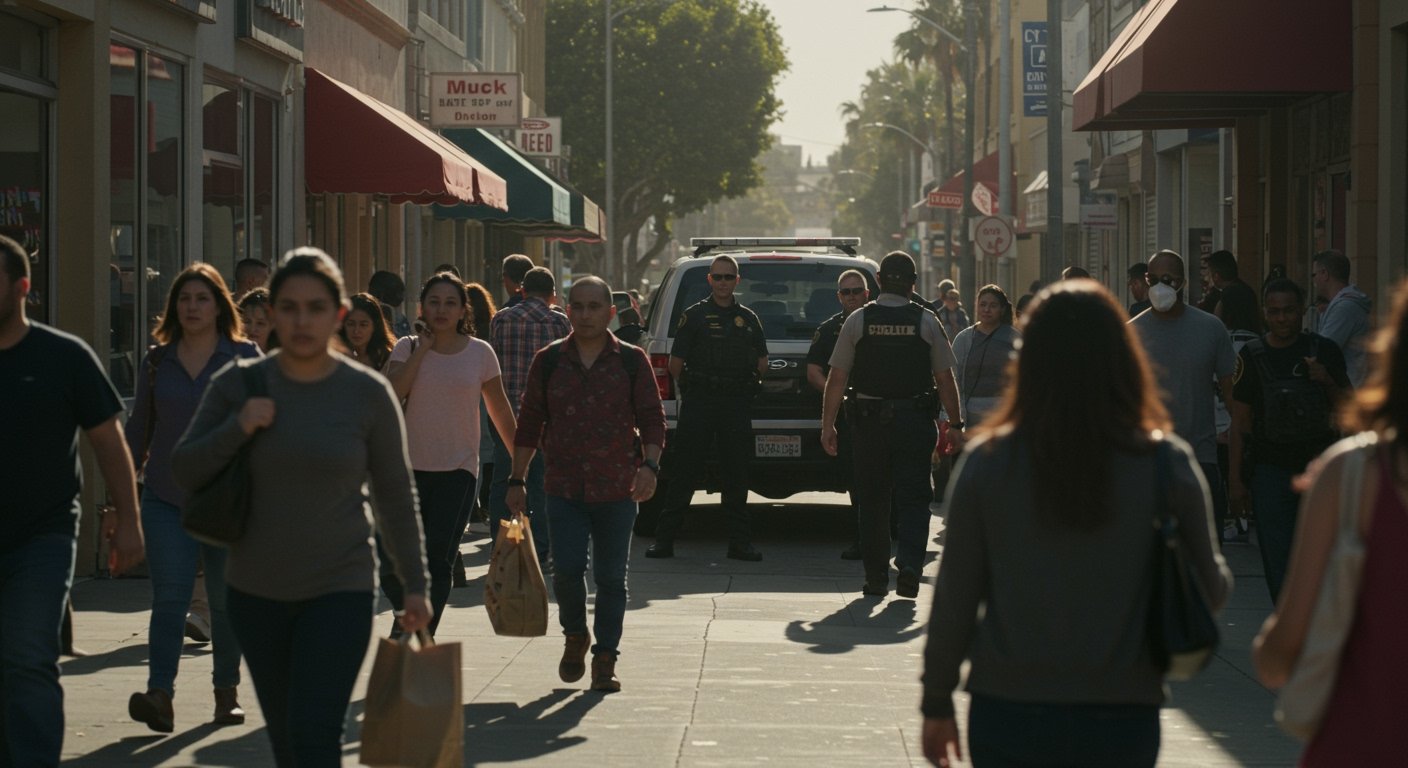California residents, particularly those within the state’s diverse Latino communities, report a growing sense of fear and anxiety amid ongoing immigration enforcement actions across the state. The situation is described by some as being “scared to be brown,” highlighting the depth of concern regarding potential racial profiling, despite denials from the Department of Homeland Security (DHS).
Concerns are particularly heightened by the tactics employed by Border Patrol agents, including what are described as ‘roving patrols’ operating inland. These patrols have led to increased scrutiny and, in some instances, the detention of individuals who are, in fact, U.S. citizens.
Rising Anxiety
The atmosphere of apprehension is palpable, extending beyond undocumented immigrants to include U.S.-born Latinos. Parents are taking cautionary measures, such as advising their U.S. citizen children to carry passports or birth certificates at all times to prove their legal status if stopped by enforcement agents. In communities like Santa Ana, workers are reportedly telling customers “Se cuiden” (take care of yourselves), a simple phrase that underscores the pervading sense of vulnerability.
The fear is not confined to those with darker complexions or recent immigration histories. Even individuals who identify as light-skinned Latinos have voiced concerns about potential stops and questions based on appearance or ethnicity.
Enforcement Tactics and Impacts
The ‘roving patrols’ mentioned by residents involve agents stopping vehicles and questioning individuals away from the immediate border area. One specific instance cited involved a U.S. citizen who was arrested on assault charges following an encounter during a ‘roving patrol’, an incident that has further fueled fears about the reach and methods of enforcement.
Immigration raids have also been reported at various public and commercial locations across the state, including commonplace sites such as Home Depots and car washes. These operations can disrupt daily life and contribute to the feeling that no location is entirely safe from enforcement activities.
Related Incidents in Los Angeles Area
The intensified enforcement landscape is mirrored by several notable recent events in the Los Angeles area. Leaders within the City of Los Angeles have publicly announced they are considering pursuing a lawsuit regarding the scope and impact of federal immigration enforcement activities within their jurisdiction.
Recent raids in the Los Angeles area specifically have reportedly resulted in the apprehension of mostly men. Sources indicate that many of these individuals were without criminal convictions and were picked up off the street, rather than targeted based on specific criminal warrants or records. This pattern has added to concerns that enforcement is broadly impacting communities rather than solely focusing on individuals deemed a threat.
Another incident that drew significant attention involved ICE agents entering the UCLA Ronald Reagan Medical Center. While officials later stated that this specific event was not a raid, the presence of immigration enforcement agents in a hospital environment sparked considerable alarm among patients, staff, and the wider community, raising questions about the protocols for enforcement actions in sensitive locations.
Furthermore, National Guard troops who had been deployed to Los Angeles were subsequently reported to have been sent to participate in a raid on a Riverside County marijuana farm. This utilization of military personnel in conjunction with immigration enforcement, even in a context related to other illicit activities, has been viewed by some as an expansion of enforcement reach and tactics.
Official Response
Amidst the rising tide of fear and specific concerns about tactics like ‘roving patrols’ and detentions of citizens, the Department of Homeland Security has issued denials regarding accusations of racial profiling. Official statements from DHS assert that enforcement actions are intelligence-driven and focused on individuals who meet specific criteria, typically related to immigration violations or criminal histories, and are not based on race or ethnicity.
However, the experiences and widespread fear reported by California residents, particularly within Latino communities, suggest a significant disconnect between official policy descriptions and the perceived reality on the ground. The ongoing tension between federal enforcement mandates and the impact on settled communities continues to shape the social and political landscape across California.





